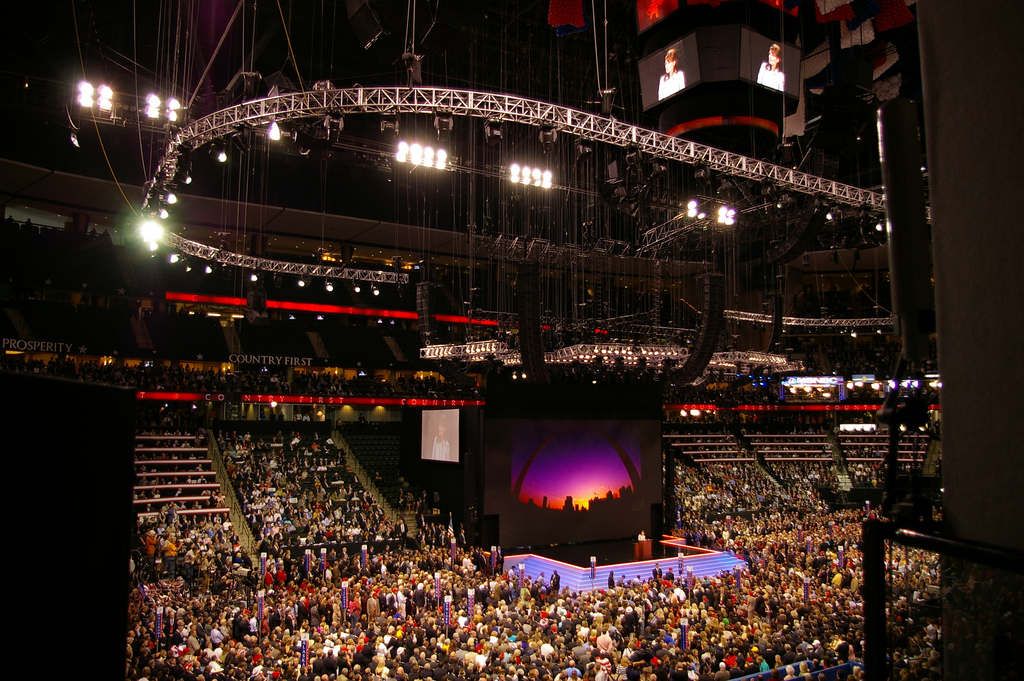
Otto Barenberg is a student at Harvard Law School and the Digital Director of OnLabor.
In today’s news and commentary, the Teamsters president will speak at the Republican National Convention; the Supreme Court will weigh in on overtime exemptions; and Honda faces an unfair labor practice complaint.
On Friday, Teamsters President Sean O’Brien accepted Donald Trump’s invitation to speak at the Republican National Convention (RNC) in Milwaukee next month. The move is “truly unprecedented,” a Teamsters spokesperson said, “since it will be the very first time a Teamsters general president has addressed the RNC.” The Teamsters, who backed President Joe Biden in 2020, have not yet made an endorsement in the 2024 presidential race and have been careful to clarify that O’Brien’s RNC appearance does not necessarily mean they will back Trump. O’Brien has also asked to speak at the Democratic National Convention (DNC), whose speaker list remains unfinalized. But the Teamsters, who represent 1.3 million workers, are nonetheless a major outlier among large unions, most of which have already endorsed Biden—including the AFL-CIO, the UAW, and the National Education Association.
O’Brien drew harsh criticism from union leaders and members of his own executive team when he met with Trump at Mar-a-Lago earlier this year. John Palmer, the Teamsters International Vice President, wrote a letter at the time condemning Trump as “a known union buster, scab, and insurrectionist.” Palmer argued: “we should never entertain dialogue with a candidate with such an anti-union record.” Union leaders and Democratic strategists are concerned O’Brien’s RNC speech will erode Biden’s increasingly tenuous advantage among union members. Whereas Biden won the union vote in 2020 by eight percentage points in the six closest swing states—Arizona, Georgia, Michigan, Nevada, Pennsylvania and Wisconsin—some polls now show him tied with Trump among union members.
Last week, the Supreme Court agreed to clarify the burden of proof in federal overtime exemption cases. The Justices will review a recent Fourth Circuit decision that requires employers to show “clear and convincing evidence” that their employees are exempt from the Fair Labor Standards Act’s overtime protections. In contrast, the Fifth, Sixth, Seventh, Ninth, Tenth, and Eleventh Circuits apply the more employer-friendly “preponderance of the evidence” standard. The case, E.M.D. Sales v. Carrera, arrives on the heels of a Department of Labor rule expanding overtime protections to an additional four million workers and a subsequent flood of legal challenges to those changes.
On Tuesday, a National Labor Relations Board (NLRB) regional director accused Honda of violating the rights of unionizing workers at an Indiana plant. The United Auto Workers (UAW) initiated the complaint against the Japanese automaker, alleging Honda committed unfair labor practices (ULPs) by ordering workers to remove UAW insignia from their hardhats and disciplining union supporters. The Honda facility in Greensburg, IN is one of over a dozen the UAW is targeting in its campaign to organize 150,000 workers across the South and Midwest. Honda is the fourth major foreign automaker against which the UAW has brought ULP charges in recent months, along with Mercedes, Volkswagen, and Hyundai.






Daily News & Commentary
Start your day with our roundup of the latest labor developments. See all
March 5
Colorado judge grants AFSCME’s motion to intervene to defend Colorado’s county employee collective bargaining law; Arizona proposes constitutional amendment to ban teachers unions’ use public resources; NLRB unlikely to use rulemaking to overturn precedent.
March 4
The NLRB and Ex-Cell-O; top aides to Labor Secretary resign; attacks on the Federal Mediation and Conciliation Service
March 3
Texas dismantles contracting program for minorities; NextEra settles ERISA lawsuit; Chipotle beats an age discrimination suit.
March 2
Block lays off over 4,000 workers; H-1B fee data is revealed.
March 1
The NLRB officially rescinds the Biden-era standard for determining joint-employer status; the DOL proposes a rule that would rescind the Biden-era standard for determining independent contractor status; and Walmart pays $100 million for deceiving delivery drivers regarding wages and tips.
February 27
The Ninth Circuit allows Trump to dismantle certain government unions based on national security concerns; and the DOL set to focus enforcement on firms with “outsized market power.”